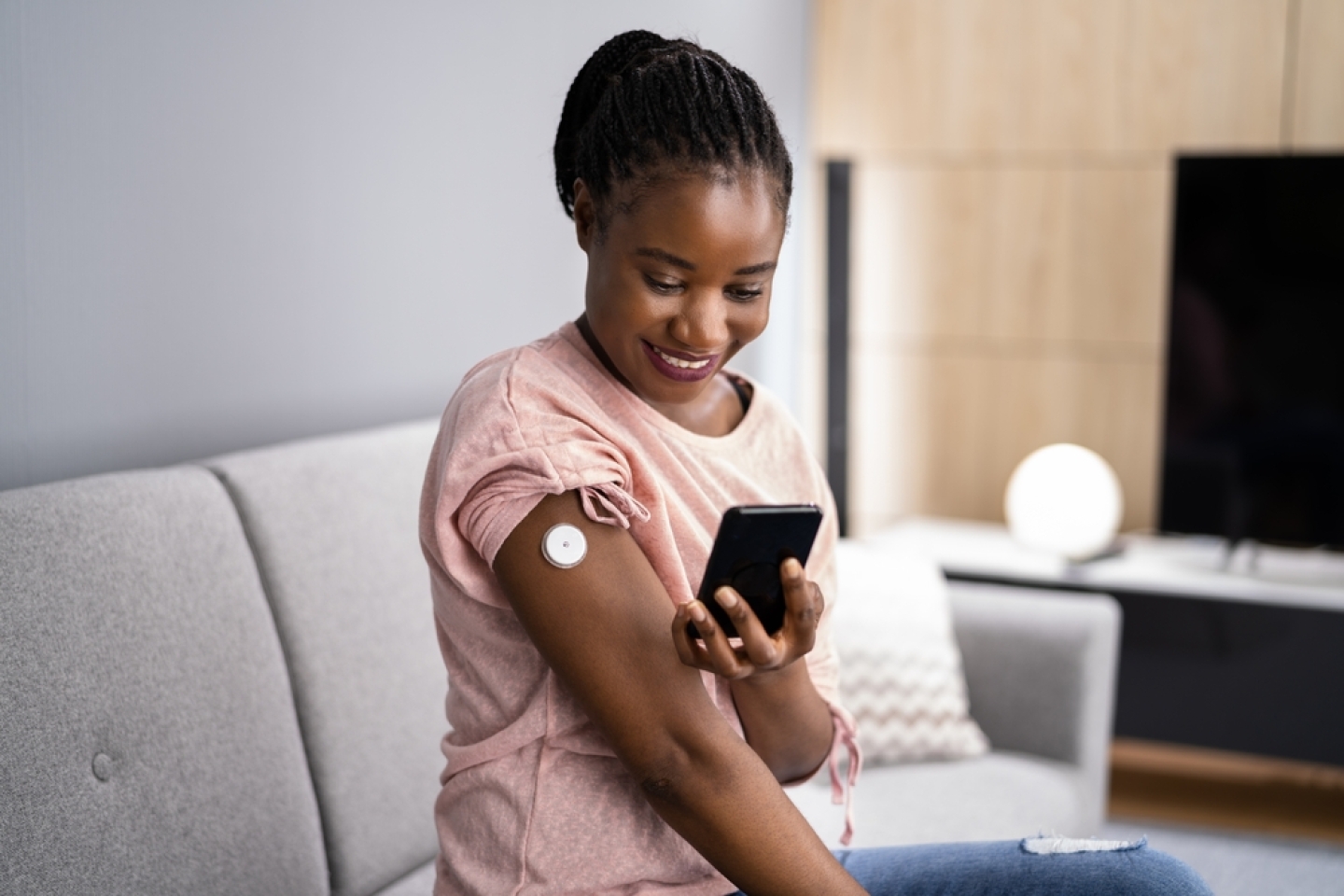
If you have diabetes, trying to keep up with all the medical advances that develop every year can feel overwhelming. However, when it comes to managing a chronic condition like diabetes, prioritizing your health is always worth the effort.
“If you don’t know about your options, you may miss opportunities to enhance your diabetes management,” says Rachel Stahl Salzman, MS, RD, CDN, CDCES, lecturer in medicine in the Division of Endocrinology, Diabetes and Metabolism at Weill Cornell Medicine. “New diabetes care options empower you to live life to the fullest.”
Type 1 diabetes, previously known as juvenile diabetes because it was often diagnosed in children and teens, develops as the result of an improper immune system response. The improper response causes the body to make very little or no insulin, the hormone that regulates the blood glucose (sugar). Without the right amount of insulin, blood sugar can rise to a dangerous level.
Primary treatment is insulin, which helps keep blood sugar in healthy ranges, along with lifestyle modification. A new medication is available that may help postpone Type 1 diabetes diagnosis.
Known as TZIELD (teplizumab-mzwv), the medication earned U.S. Food & Drug Administration (FDA) approval in November 2022 for patients ages 8 and older. Given daily through an IV for two weeks, TZIELD helps people maintain a proper immune response, which slows the progression of Type 1 diabetes.
Insulin pumps have been around for years. An insulin pump is a wearable device that delivers short- or rapid-acting insulin. Insulin pumps that are currently available may attach to the body by a catheter and tubing, or directly to the skin with a pod—a tubeless pump—or patch.
New insulin pump advances make it easier to get insulin when needed, and less user input is needed compared with older insulin pumps.
A new pump, the Beta Bionics iLet, makes life easier for those with Type 1 diabetes.
“This is the first pump to not require the individual to count carbohydrates,” Stahl Salzman says. “You simply ‘announce’ the meal type (e.g. breakfast, lunch, or dinner) on the pump and indicate the estimated carbohydrate amount for each meal (Is the meal usual for me, More than usual, or Less than usual), and the pump automatically calculates how much insulin you need.”
With Type 2 diabetes, your body produces insulin but your cells don’t use it properly, causing your blood sugar level to rise. Exercise helps manage blood glucose levels. It also helps you lose weight. Weight loss often helps you more easily manage Type 2 diabetes.
When healthy eating and exercise aren’t enough to manage blood sugar levels, medication can help. Depending on your needs, you may take medication such as insulin.
Glucagon-like peptide 1 (GLP-1) receptor agonists have helped many people manage Type 2 diabetes over the years. In addition to lowering blood glucose, this medication aids in weight loss.
Recently, this was combined with glucose-dependent insulinotropic polypeptide (GIP). The result is a dual GLP-1/GIP receptor agonist. Tirzepatide is the first such medication to gain FDA approval and it provides some benefits:
Monitoring blood glucose levels is vital if you have diabetes. Traditionally, doing so required you to take several fingerstick tests multiple times a day using a blood glucose meter. Continuous glucose monitoring monitors your glucose levels continuously, providing a glucose reading every 1–5 minutes.
“Traditional glucose monitoring gave us a glimpse of your glucose levels,” Stahl Salzman says. “Continuous glucose monitors give a clear picture of glycemic management 24 hours a day.”
Benefits that the American Diabetes Association link to continuous glucose monitors include:
As technology advances, continuous glucose monitors are now easier to apply and use, more accurate, smaller and less intrusive than ever before. These developments have led to an increase in glucose monitor usage which was also boosted by expanded Medicare coverage.
Most exciting, the FDA recently cleared three continuous glucose monitoring devices for women with gestational diabetes. This type of diabetes arises during pregnancy and can increase the risk of complications.
As advances continue, one benefit stands out.
“Active patient involvement is essential to living with diabetes,” Stahl Salzman says, “and these tools help patients stay motivated and engaged in their care.”
Free resources abound to help take control of your health. Stahl Salzman encourages patients to seek information from evidence-based sources, such as:
Along with online research, Stahl Salzman recommends talking with your healthcare provider. Open, honest conversations ensure you get the answers you need to live the healthiest life possible.
“If you have diabetes, you’re not alone,” Stahl Salzman says. “Your diabetes care team is there to support you every step of the way.”
Today, smart weight scales measure weight and estimate body fat. Continuous glucose monitors monitor your glucose levels all day, every day. Phone apps track this data and more, so keeping an eye on your health is easier than ever.
All this data can also be sent to your health team. If your blood glucose numbers aren’t where they belong, your provider can discuss potential treatment changes. Any time you have questions, you can see your provider in person or online via a video visit.
Exciting as today’s diabetes advances are, there are more on the way. By staying in touch with your provider, you can learn of new advances that may make life with diabetes better for you.
“All of these treatment options can help manage diabetes and improve your quality of life,” Stahl Salzman says. “However, there is no one-size-fits-all approach to diabetes treatment. The best treatment plan for you will depend on your individual needs and preferences. Talk with your provider to find what’s right for you.”
Find a healthcare provider at Weill Cornell Medicine to help manage your diabetes.